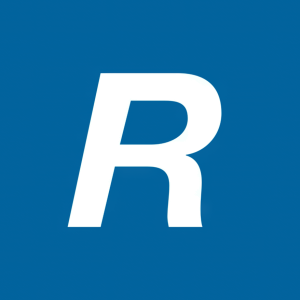Regeneron's COVID-19 Outpatient Trial Prospectively Demonstrates that REGN-COV2 Antibody Cocktail Significantly Reduced Virus Levels and Need for Further Medical Attention
Rhea-AI Summary
TARRYTOWN, N.Y., Oct. 28, 2020 /PRNewswire/ -- Regeneron reported positive results from a Phase 2/3 trial of its investigational COVID-19 antibody cocktail, REGN-COV2. Data from an additional 524 patients confirmed significant reductions in both viral load and medical visits. The treatment reduced COVID-19 related medical visits by 57% overall and 72% in high-risk patients. Regeneron has submitted these results to the U.S. FDA for Emergency Use Authorization. The trial demonstrated no significant differences in outcomes between high and low doses of REGN-COV2, leading to potential dosing changes in ongoing trials.
Positive
- REGN-COV2 significantly reduced viral load by 0.68 log10 copies/mL compared to placebo (p<0.0001).
- Treatment reduced COVID-19 related medical visits by 57% overall (p=0.024).
- In high-risk patients, REGN-COV2 reduced medical visits by 72% (p=0.0065).
- Trial met all nine primary endpoints, confirming earlier findings.
- REGN-COV2 was well tolerated with fewer serious adverse events compared to placebo.
Negative
- No significant difference in virologic or clinical efficacy between high (8g) and low (2.4g) doses.
- Potential changes to dosing may affect ongoing outpatient trial outcomes.
News Market Reaction – REGN
On the day this news was published, REGN declined 1.98%, reflecting a mild negative market reaction.
Data tracked by StockTitan Argus on the day of publication.
TARRYTOWN, N.Y., Oct. 28, 2020 /PRNewswire/ --
Today's data, involving an additional 524 patients from the ongoing Phase 2/3 trial, provides definitive final virology results and meets the clinical endpoint of reducing medical visits
Regeneron has shared these results with the U.S. FDA, which is reviewing an Emergency Use Authorization submission for the REGN-COV2 low dose in adults with mild-to-moderate COVID-19 who are at high risk for poor outcomes
Regeneron Pharmaceuticals, Inc. (NASDAQ: REGN) today announced positive, prospective results from an ongoing Phase 2/3 seamless trial in the COVID-19 outpatient setting showing its investigational antibody cocktail, REGN-COV2, met the primary and key secondary endpoints. REGN-COV2 significantly reduced viral load and patient medical visits (hospitalizations, emergency room, urgent care visits and/or physician office/telemedicine visits).
"The first job of an antiviral therapeutic drug is to lower the viral load, and our initial data in 275 patients strongly suggested that the REGN-COV2 antibody cocktail could lower viral load and thereby potentially improve clinical outcomes. Today's analysis, involving more than 500 additional patients, prospectively confirms that REGN-COV2 can indeed significantly reduce viral load and further shows that these viral reductions are associated with a significant decrease in the need for further medical attention," said George D. Yancopoulos, M.D., Ph.D., President and Chief Scientific Officer of Regeneron. "We continue to see the strongest effects in patients who are most at risk for poor outcomes due to high viral load, ineffective antibody immune response at baseline, or pre-existing risk factors. Regeneron has shared these results with the U.S. Food and Drug Administration as part of its review of our Emergency Use Authorization submission, and we continue to focus on completing our ongoing trials evaluating REGN-COV2 for the treatment and prevention of COVID-19."
The randomized, double-blind trial is measuring the effect of adding REGN-COV2 to usual standard-of-care, compared to adding placebo to standard-of-care. A descriptive analysis from the first 275 patients was previously reported. Today's data, involving an additional 524 patients, show the trial met all of the first nine endpoints in the statistical hierarchy, which assessed virologic endpoints based on viral load, seronegative status and dose group, as well as the key clinical endpoint of COVID-19 related medically-attended visits, in patients who had laboratory-confirmed COVID-19 at baseline. Results showed no significant difference in virologic or clinical efficacy between the REGN-COV2 high dose (8 grams) and low dose (2.4 grams). Based on this finding, Regeneron is reviewing potential changes to dosing in the ongoing outpatient clinical trial given the current limited supply of REGN-COV2.
Virologic results (n=524, prospectively confirming previous 275-patient analysis):
- On the primary endpoint, the average daily change in viral load through day 7 (mean time-weighted average change from baseline) in patients with high viral load (defined as greater than107 copies/mL) was a 0.68 log10 copies/mL greater reduction with REGN-COV2 compared to placebo (combined dose groups; p<0.0001). There was a 1.08 log greater reduction with REGN-COV2 treatment by day 5, which corresponds to REGN-COV2 patients having, on average, a greater than 10-fold reduction in viral load, compared to placebo.
- In the overall patient group with detectable virus at baseline, the average daily reduction in viral load through day 7 was a 0.36 log10 copies/mL greater reduction with REGN-COV2 compared to placebo (combined dose groups; p=0.0003).
- As in the earlier analysis, patients with higher viral load at baseline and/or no detectable antibodies at baseline (suggesting their bodies had not yet mounted an effective immune response), derived greater benefit from REGN-COV2 therapy.
Clinical results in the overall population (n=799):
- On the key clinical endpoint, treatment with REGN-COV2 reduced COVID-19 related medical visits by
57% through day 29 (2.8% combined dose groups;6.5% placebo; p=0.024). - Treatment with REGN-COV2 reduced COVID-19 related medical visits by
72% in patients with one or more risk factor (including being over 50 years of age; body mass index greater than 30; cardiovascular, metabolic, lung, liver or kidney disease; or immunocompromised status) (combined dose groups; nominal p = 0.0065).
There was no planned formal statistical analysis of symptom alleviation in this analysis; descriptive analyses did not reveal robust associations with viral load, serology status or treatment. REGN-COV2 was well tolerated in the trial. Serious adverse events were numerically more frequent with placebo than REGN-COV2 treatment (
"We will submit detailed results from this trial for publication in order to share insights with the public health and medical communities," said David Weinreich, M.D., Senior Vice President and Head of Global Clinical Development at Regeneron. "We would like to thank the global investigators, sites and patients who continue to work with us to conduct REGN-COV2 trials across different settings and geographies."
Additional Trial Background
In the overall patient population (n=799), patients were prospectively characterized prior to treatment by serology tests to see if they had already generated antiviral antibodies on their own and were thus classified as seronegative (no measurable antiviral antibodies) or seropositive (measurable antiviral antibodies). Approximately
The Phase 3 portion of this trial continues in non-hospitalized patients. REGN-COV2 is also being studied in a Phase 2/3 clinical trial for the treatment of COVID-19 in hospitalized patients, the Phase 3 open-label RECOVERY trial of hospitalized patients in the UK and a Phase 3 trial for the prevention of COVID-19 in household contacts of infected individuals.
About REGN-COV2
REGN-COV2 is a combination of two monoclonal antibodies (REGN10933 and REGN10987) and was designed specifically to block infectivity of SARS-CoV-2, the virus that causes COVID-19.
To develop REGN-COV2, Regeneron scientists evaluated thousands of fully-human antibodies produced by the company's VelocImmune® mice, which have been genetically modified to have a human immune system, as well as antibodies identified from humans who have recovered from COVID-19. The two potent, virus-neutralizing antibodies that form REGN-COV2 bind non-competitively to the critical receptor binding domain of the virus's spike protein, which diminishes the ability of mutant viruses to escape treatment and protects against spike variants that have arisen in the human population, as detailed in Science.
REGN-COV2's development and manufacturing has been funded in part with federal funds from the Biomedical Advanced Research and Development Authority (BARDA), part of the Office of the Assistant Secretary for Preparedness and Response at the U.S. Department of Health and Human Services under OT number: HHSO100201700020C. Regeneron has partnered with Roche to increase the global supply of REGN-COV2 beginning in 2021. If REGN-COV2 proves safe and effective in clinical trials and regulatory approvals are granted, Regeneron will manufacture and distribute it in the U.S. and Roche will develop, manufacture and distribute it outside the U.S.
About Regeneron
Regeneron (NASDAQ: REGN) is a leading biotechnology company that invents life-transforming medicines for people with serious diseases. Founded and led for over 30 years by physician-scientists, our unique ability to repeatedly and consistently translate science into medicine has led to eight FDA-approved treatments and numerous product candidates in development, all of which were homegrown in our laboratories. Our medicines and pipeline are designed to help patients with eye diseases, allergic and inflammatory diseases, cancer, cardiovascular and metabolic diseases, pain, infectious diseases and rare diseases.
Regeneron is accelerating and improving the traditional drug development process through our proprietary VelociSuite technologies, such as VelocImmune®, which uses unique genetically-humanized mice to produce optimized fully-human antibodies and bispecific antibodies, and through ambitious research initiatives such as the Regeneron Genetics Center, which is conducting one of the largest genetics sequencing efforts in the world.
For additional information about the company, please visit www.regeneron.com or follow @Regeneron on Twitter.
Forward-Looking Statements and Use of Digital Media
This press release includes forward-looking statements that involve risks and uncertainties relating to future events and the future performance of Regeneron Pharmaceuticals, Inc. ("Regeneron" or the "Company"), and actual events or results may differ materially from these forward-looking statements. Words such as "anticipate," "expect," "intend," "plan," "believe," "seek," "estimate," variations of such words, and similar expressions are intended to identify such forward-looking statements, although not all forward-looking statements contain these identifying words. These statements concern, and these risks and uncertainties include, among others, the impact of SARS-CoV-2 (the virus that has caused the COVID-19 pandemic) on Regeneron's business and its employees, collaborators, and suppliers and other third parties on which Regeneron relies, Regeneron's and its collaborators' ability to continue to conduct research and clinical programs (including those discussed in this press release), Regeneron's ability to manage its supply chain, net product sales of products marketed by Regeneron and/or its collaborators (collectively, "Regeneron's Products"), and the global economy; the nature, timing, and possible success and therapeutic applications of Regeneron's Products and product candidates and research and clinical programs now underway or planned, including without limitation the development program relating to REGN-COV2 (Regeneron's investigational dual antibody for the treatment and prevention of COVID-19); whether the U.S. Food and Drug Administration will grant an Emergency Use Authorization ("EUA") for REGN-COV2 and, if an EUA is granted, how long it would remain in effect for REGN-COV2; the likelihood, timing, and scope of possible regulatory approval and commercial launch of Regeneron's product candidates (such as REGN-COV2) and new indications for Regeneron's Products; safety issues resulting from the administration of Regeneron's Products and product candidates (such as REGN-COV2) in patients, including serious complications or side effects in connection with the use of Regeneron's Products and product candidates in clinical trials; the ability of Regeneron to manufacture in anticipated quantities Regeneron's Products and product candidates, including REGN-COV2; the ability of Regeneron to manufacture and manage supply chains for multiple products and product candidates; the ability of Regeneron's collaborators, suppliers, or other third parties (as applicable) to perform manufacturing, filling, finishing, packaging, labeling, distribution, and other steps related to Regeneron's Products and product candidates; uncertainty of market acceptance and commercial success of Regeneron's Products and product candidates and the impact of studies (whether conducted by Regeneron or others and whether mandated or voluntary), including the studies discussed in this press release, on any potential regulatory approval (including with respect to REGN-COV2) and/or the commercial success of Regeneron's Products and product candidates; determinations by regulatory and administrative governmental authorities which may delay or restrict Regeneron's ability to continue to develop or commercialize Regeneron's Products and product candidates, including without limitation REGN-COV2; ongoing regulatory obligations and oversight impacting Regeneron's Products, research and clinical programs, and business, including those relating to patient privacy; the availability and extent of reimbursement of Regeneron's Products from third-party payers, including private payer healthcare and insurance programs, health maintenance organizations, pharmacy benefit management companies, and government programs such as Medicare and Medicaid; coverage and reimbursement determinations by such payers and new policies and procedures adopted by such payers; competing drugs and product candidates that may be superior to, or more cost effective than, Regeneron's Products and product candidates; the extent to which the results from the research and development programs conducted by Regeneron and/or its collaborators may be replicated in other studies and/or lead to advancement of product candidates to clinical trials, therapeutic applications, or regulatory approval; unanticipated expenses; the costs of developing, producing, and selling products; the ability of Regeneron to meet any of its financial projections or guidance and changes to the assumptions underlying those projections or guidance; the potential for any license or collaboration agreement, including Regeneron's agreements with Sanofi, Bayer, and Teva Pharmaceutical Industries Ltd. (or their respective affiliated companies, as applicable), as well as Regeneron's collaboration with Roche relating to REGN-COV2, to be cancelled or terminated; and risks associated with intellectual property of other parties and pending or future litigation relating thereto (including without limitation the patent litigation and other related proceedings relating to EYLEA® (aflibercept) Injection, Dupixent® (dupilumab), and Praluent® (alirocumab)), other litigation and other proceedings and government investigations relating to the Company and/or its operations, the ultimate outcome of any such proceedings and investigations, and the impact any of the foregoing may have on Regeneron's business, prospects, operating results, and financial condition. A more complete description of these and other material risks can be found in Regeneron's filings with the U.S. Securities and Exchange Commission, including its Form 10-K for the year ended December 31, 2019 and its Form 10-Q for the quarterly period ended June 30, 2020. Any forward-looking statements are made based on management's current beliefs and judgment, and the reader is cautioned not to rely on any forward-looking statements made by Regeneron. Regeneron does not undertake any obligation to update (publicly or otherwise) any forward-looking statement, including without limitation any financial projection or guidance, whether as a result of new information, future events, or otherwise.
Regeneron uses its media and investor relations website and social media outlets to publish important information about the Company, including information that may be deemed material to investors. Financial and other information about Regeneron is routinely posted and is accessible on Regeneron's media and investor relations website (http://newsroom.regeneron.com) and its Twitter feed (http://twitter.com/regeneron).
Contacts:
Media Relations
Alexandra Bowie
Tel: +1 (914) 847-3407
alexandra.bowie@regeneron.com
Investor Relations
Mark Hudson
Tel: +1 (914) 847-3482
mark.hudson@regeneron.com
SOURCE Regeneron Pharmaceuticals, Inc.







